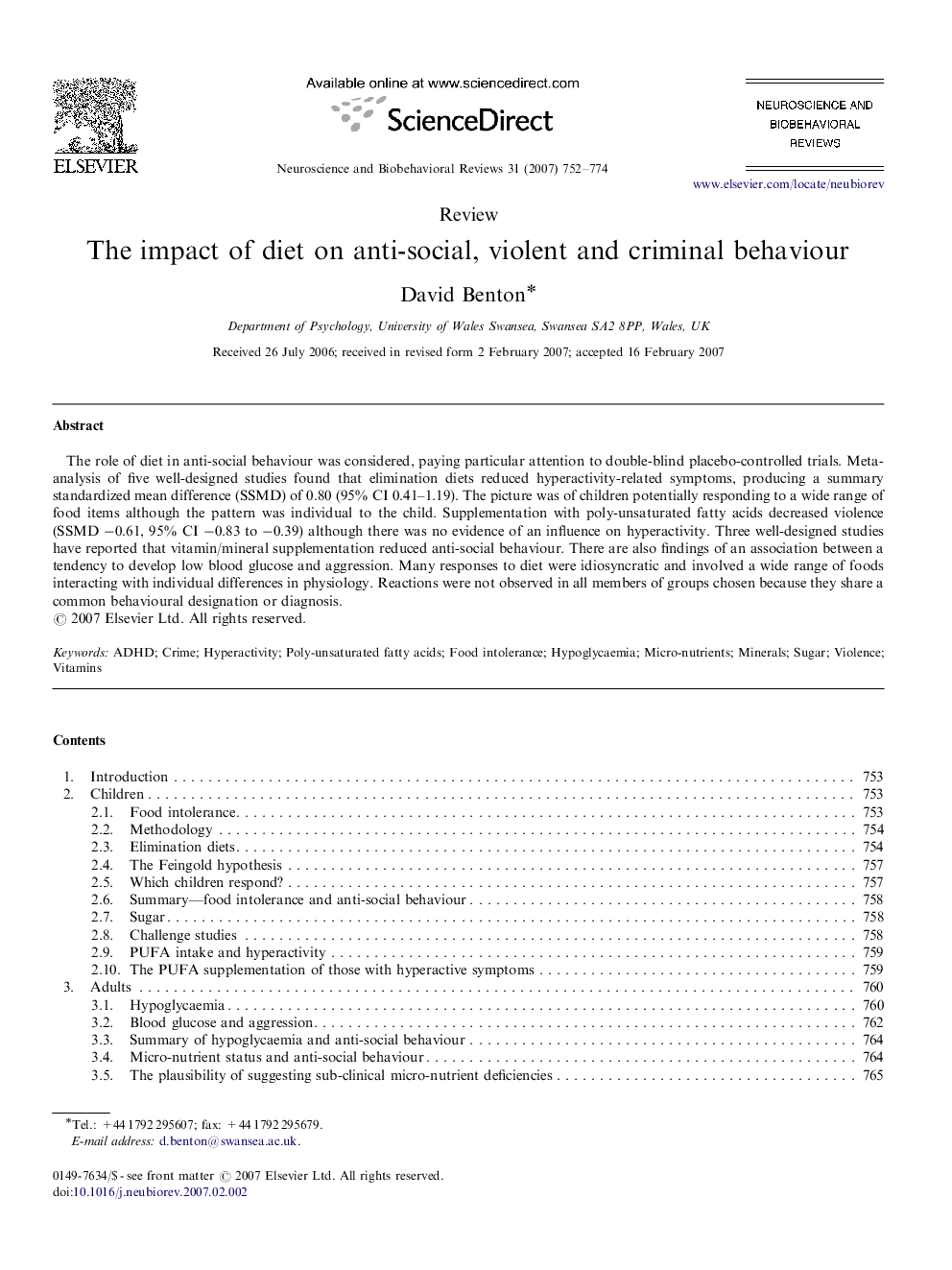| Article ID | Journal | Published Year | Pages | File Type |
|---|---|---|---|---|
| 938033 | Neuroscience & Biobehavioral Reviews | 2007 | 23 Pages |
The role of diet in anti-social behaviour was considered, paying particular attention to double-blind placebo-controlled trials. Meta-analysis of five well-designed studies found that elimination diets reduced hyperactivity-related symptoms, producing a summary standardized mean difference (SSMD) of 0.80 (95% CI 0.41–1.19). The picture was of children potentially responding to a wide range of food items although the pattern was individual to the child. Supplementation with poly-unsaturated fatty acids decreased violence (SSMD −0.61, 95% CI −0.83 to −0.39) although there was no evidence of an influence on hyperactivity. Three well-designed studies have reported that vitamin/mineral supplementation reduced anti-social behaviour. There are also findings of an association between a tendency to develop low blood glucose and aggression. Many responses to diet were idiosyncratic and involved a wide range of foods interacting with individual differences in physiology. Reactions were not observed in all members of groups chosen because they share a common behavioural designation or diagnosis.
